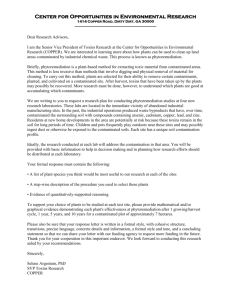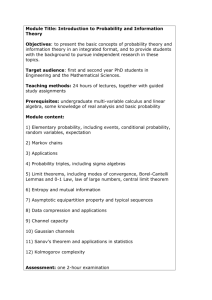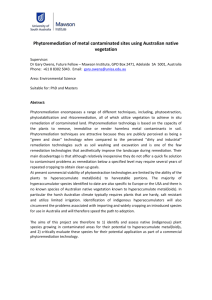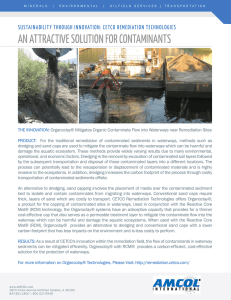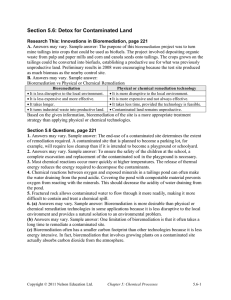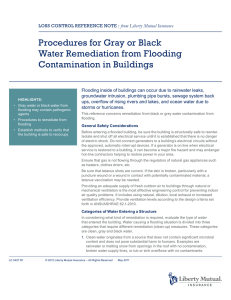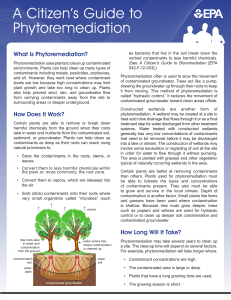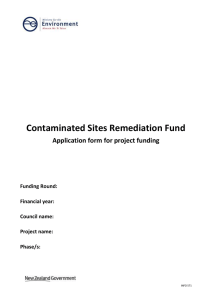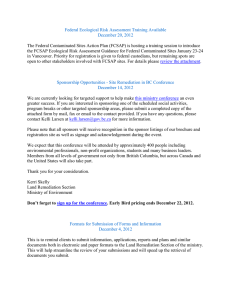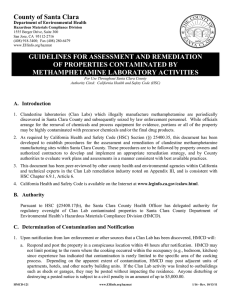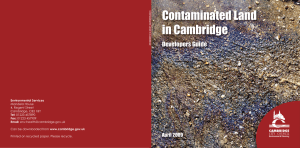CEGEG016: Environmental Systems Outline :
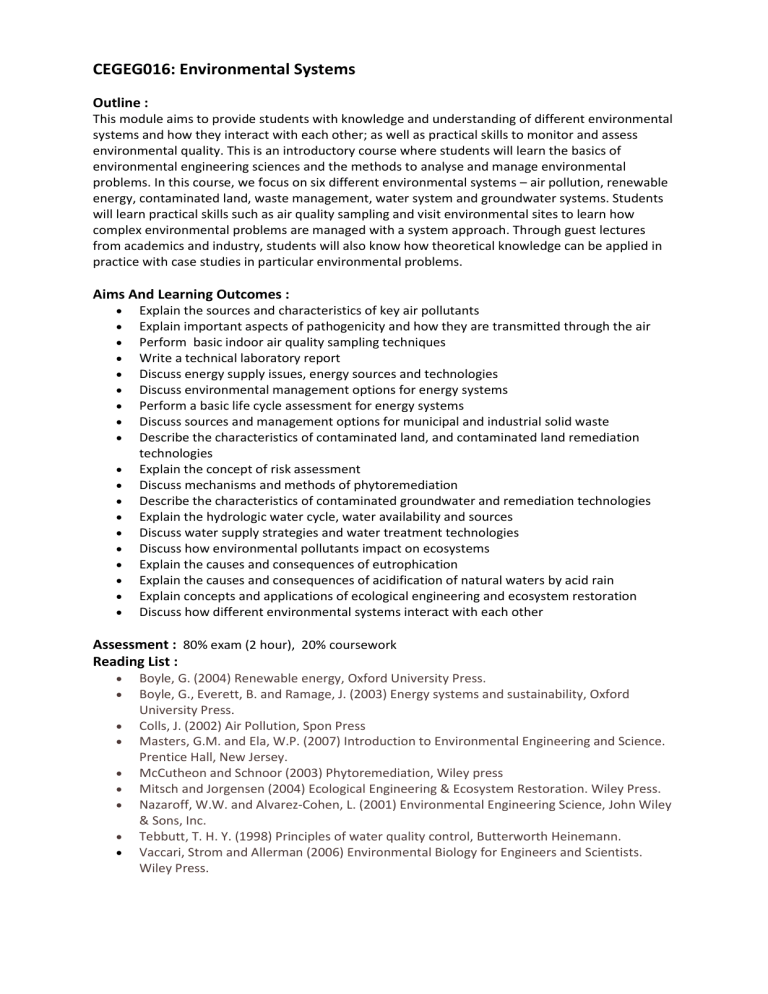
CEGEG016: Environmental Systems
Outline :
This module aims to provide students with knowledge and understanding of different environmental systems and how they interact with each other; as well as practical skills to monitor and assess environmental quality. This is an introductory course where students will learn the basics of environmental engineering sciences and the methods to analyse and manage environmental problems. In this course, we focus on six different environmental systems – air pollution, renewable energy, contaminated land, waste management, water system and groundwater systems. Students will learn practical skills such as air quality sampling and visit environmental sites to learn how complex environmental problems are managed with a system approach. Through guest lectures from academics and industry, students will also know how theoretical knowledge can be applied in practice with case studies in particular environmental problems.
Aims And Learning Outcomes :
Explain the sources and characteristics of key air pollutants
Explain important aspects of pathogenicity and how they are transmitted through the air
Perform basic indoor air quality sampling techniques
Write a technical laboratory report
Discuss energy supply issues, energy sources and technologies
Discuss environmental management options for energy systems
Perform a basic life cycle assessment for energy systems
Discuss sources and management options for municipal and industrial solid waste
Describe the characteristics of contaminated land, and contaminated land remediation technologies
Explain the concept of risk assessment
Discuss mechanisms and methods of phytoremediation
Describe the characteristics of contaminated groundwater and remediation technologies
Explain the hydrologic water cycle, water availability and sources
Discuss water supply strategies and water treatment technologies
Discuss how environmental pollutants impact on ecosystems
Explain the causes and consequences of eutrophication
Explain the causes and consequences of acidification of natural waters by acid rain
Explain concepts and applications of ecological engineering and ecosystem restoration
Discuss how different environmental systems interact with each other
Assessment :
80% exam (2 hour), 20% coursework
Reading List :
Boyle, G. (2004) Renewable energy, Oxford University Press.
Boyle, G., Everett, B. and Ramage, J. (2003) Energy systems and sustainability, Oxford
University Press.
Colls, J. (2002) Air Pollution, Spon Press
Masters, G.M. and Ela, W.P. (2007) Introduction to Environmental Engineering and Science.
Prentice Hall, New Jersey.
McCutheon and Schnoor (2003) Phytoremediation, Wiley press
Mitsch and Jorgensen (2004) Ecological Engineering & Ecosystem Restoration. Wiley Press.
Nazaroff, W.W. and Alvarez-Cohen, L. (2001) Environmental Engineering Science, John Wiley
& Sons, Inc.
Tebbutt, T. H. Y. (1998) Principles of water quality control, Butterworth Heinemann.
Vaccari, Strom and Allerman (2006) Environmental Biology for Engineers and Scientists.
Wiley Press.
